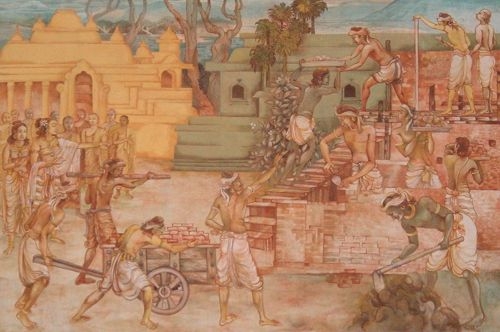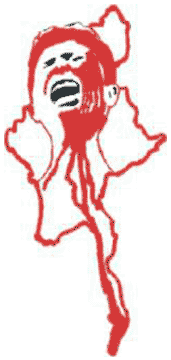|
Tolerance in Buddhism, 3
by Ken and Visakha Kawasaki
|
Tolerance toward women
Buddha once soothed the great King Pasenadi, who was angry and upset because his queen, Mallika, had given birth to a daughter: "A female offspring, O king, may prove even nobler than a male."
As regards equality of the sexes, in the Sigalovada Sutta, Buddha enumerated five duties of the husband toward his wife: respect, courtesy, faithfulness, handing over authority, and providing gifts of finery. He also enumerated five duties of the wife toward her husband: managing the household well, hospitality to relatives, faithfulness, taking care of his property, and skillfulness and industriousness.
|
| Buddha made himself readily available to his nuns and female lay disciples. He never discriminated against women in his teaching and praised those women who were outstanding for particular characteristics, such as preaching ability or insight. The devout and generous laywoman, Visakha, regularly visited the Buddha whenever he was in Savatthi to offer requisites, to seek advice, and to listen to his sermons. Accompanied by friends and servants, Visakha scrupulously attended to the needs of monks and novices, offering medicine to the sick and supporting visiting monks. She was foremost among lay women disciples. |

| Visakha, directing the construction of Pubbarama, the monastery she built for the Buddha. Painting in the Sri Lankan Temple in Sravasti, India. |
|
|
|
|
Buddha clearly affirmed that women were equally as capable as men of becoming fully enlightened arahats and that they followed the same path as men to get there. Buddha stated that any differences between men and women were irrelevant in the pursuit of liberation.
|
"The straight way" that path is called,
And "fearless" is its destination.
The chariot is called "unrattling,"
Fitted with wheels of wholesome states.
The sense of shame is its leaning board,
Mindfulness its upholstery;
I call the Dhamma the charioteer,
With right view running out in front.
One who has such a vehicle--
Whether a woman or a man--
Has, by means of this vehicle,
Drawn close to Nibbana.
--Samyutta Nikaya |
|
|
|
|
When Mara, the Evil One, taunted the bhikkhuni Ven. Soma that no woman could reach "the high ground of the wise" because she had only "two-finger knowledge" of a woman (an allusion to cooking rice where its consistency was tested by pressing it between two fingers), that great nun proclaimed:
|
What matters being a woman
If with mind firmly set
One grows in the knowledge
Of the Right Law, with insight?
Any one who has to question
Am I a woman or am I a man
And does not oneself really know
Over such a one will Mara triumph.
--Samyutta Nikaya |
|
|
|
|
|
|
|
|
|
|
|
 |
|
| Buddhist Relief Mission Website |
|
|
|
|
|
|
|
 |
|
|
Burmese Relief Center--USA Website |
|
|
|
|
|
|
|
|
|
|
|
|
|
|
|
|
|


